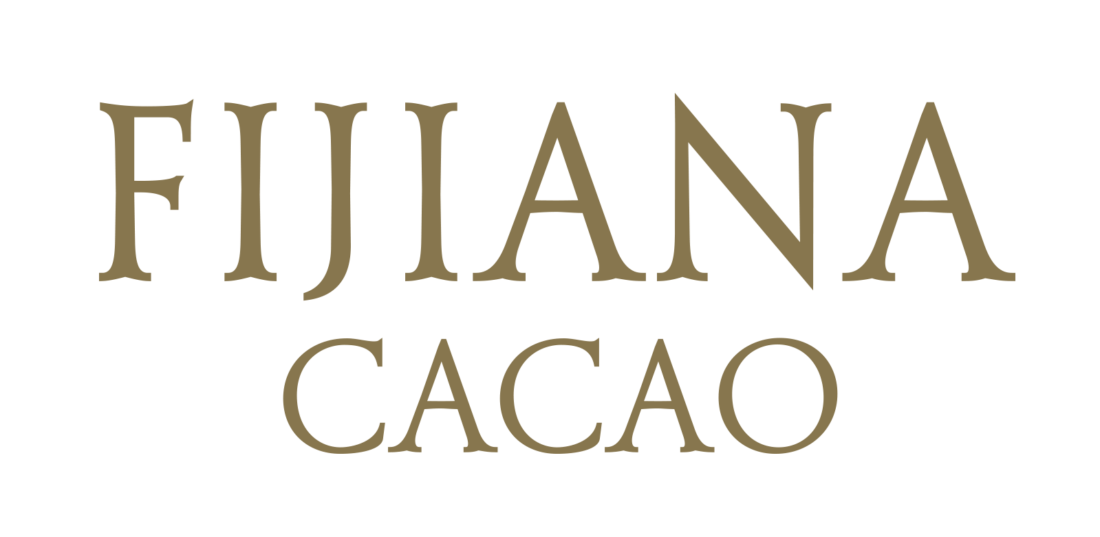Cyclone Winston

Cyclone Winston Recovery for Fiji Cacao farmers
This post focuses on Fijiana Cacao’s Cyclone Winston recovery journey to aid Cacao farmers, families and villages and the rain forest itself. Read about how we helped cacao farming villages to recover from the enormous damage caused by Cyclone Winston. We also share our Cacao Entrepreneurship plan for future cacao farmers.
Find out more by reading this blog post and help support the Fiji Cacao farming industry by buying Fiji-made chocolate.
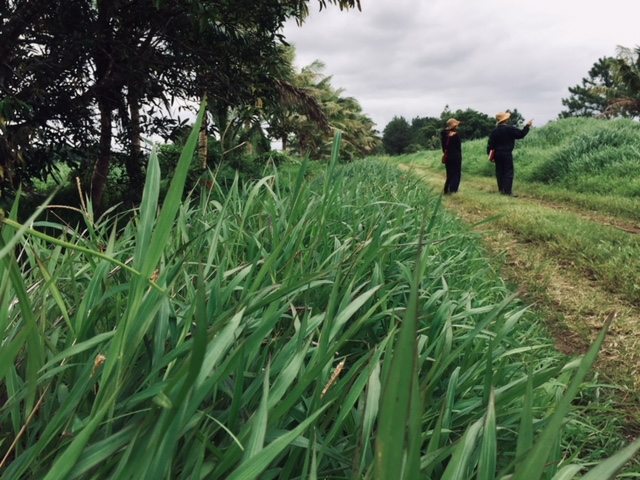
Cacao plantation in Sigatoka
Cyclone Winston
In 2016, a disastrous cyclone formed around the Pacific Islands and caused 44 fatalities. Many people lost their homes, jobs and families. During this disaster, many cacao trees in Fiji, especially in the western region were destroyed. Cacao farmers lost their precious trees and crops that they rely on for survival.
The winds from Cyclone Winston were strong enough to blow down large shade trees and let nature destroy itself from within. Many bits and pieces of houses like tin roofs were stuck onto trees, tiny seedlings from various crops were washed away by the flood, their weary seedling bodies were found in random places.
It has been almost two years since cyclone Winston, and through collaborations towards rehabilitation of agriculture for the farmers, we are pleased to say that the rain forest has developed positively over a short period of time.
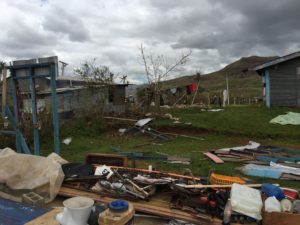
Cyclone Winston damage
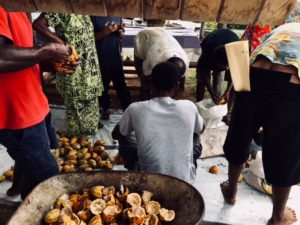
Cacao farmers salvaging damaged pods
Rehabilitation
So much was destroyed, immediately there was a shortage of food. To give them strength, we distributed powdered milk to the villages, men and children would bring empty buckets to store the milk. After this, we provided the farmers and villagers with carpentry tools to help rebuild their homes.
During the first step towards recovery, the village boys packed bottles of water to keep themselves hydrated while they cleared heavy and dangerous objects scattered across the forest floor. Working with the village boys we cleared 10 plantations which took about 3 months for this task alone. The ladies in the village were hard at work too, they cleaned up their fully destroyed houses to the best of their ability. The children played with toys that they had held on to tightly during the cyclone. They had lost pretty much everything, so they clung to the toys they had left.
After clearing, we did production of a nursery of over 10,000 new cacao plants. This was a really important step to rebuild cacao crops, as it takes up to 5 years for a cacao tree to produce edible fruits. Once the cacao pods are ripe, processing stations are needed to properly harvest the beans and turn them into a sellable crop.
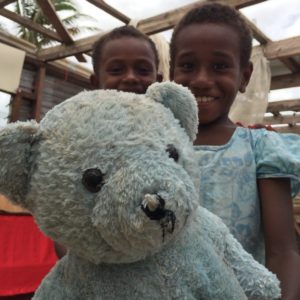
Village girls with their teddy bear
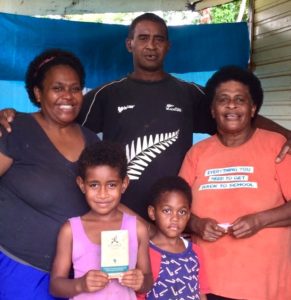
Farmer’s family with Fijiana Cacao chocolate bar
We also collaborated with EU/SPC Cyclone Winston recovery program, where we supported approximately 50 farmers with farming equipment and cacao processing stations. We built 3 post-harvesting processing stations for the Cacao farming community to use – this took a month to complete.
Our company focused mainly in the Ra (Rakiraki) region as it had most farmers and the worst damage from the cyclone. During our months working on rehabilitation, we were grateful to witness the lifeless rain forest flourish into rich green surfaces with bird and insect calls, echoing throughout the remote rain forest.
This is the moment that we realized the fragility of nature and the power of human beings towards recovery. Working together we managed to rehabilitate some of the plantations. A lot happened in 2016, looking back now; there is a longer journey with choppy waves that can turn boats over in any moment. Meaning that anything can still happen; Fiji has cyclones nearly every year although we were particularly unlucky with Winston as it was the most intense tropical cyclone in the Southern Hemisphere on record, as well as the strongest to make landfall in the Southern Hemisphere.
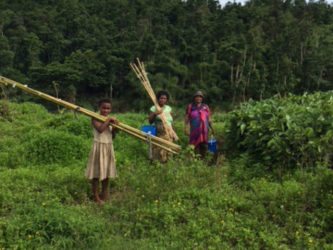
Village ladies collecting Bamboo for Fijian rafts (bilibili)
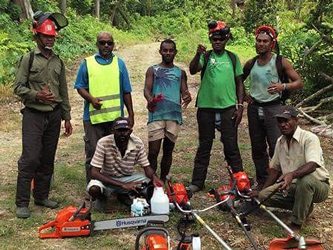
Equipment donated to help with rehabilitation
More than a Recovery – Cacao Entrepreneurship
Due to our efforts in our Cyclone Winston Rehabilitation program, we were able to establish ourselves and our cacao farming techniques, gaining trust with future cacao farmers. Months of work was carried out to plant and rebuild some of what was lost. We have progressed in motivating and reasoning with farmers about the benefits of Cacao Entrepreneurship, teaching them how to properly plant, grow and process cacao beans.
“Farmers should gain independence for development and recognition in the value chain” -Tomohito Zukoshi
Cacao Entrepreneurship is the idea of local farmers, starting an entrepreneurship with a village or a local community. A local farmer can collect or buy wet beans from other cacao farmers who cannot properly process the beans into dry beans. The farmer producing the wet beans can therefore specalise in planting and growing more cacao plants – increased afforestation which contributes to environmental sustainability. The farmer buying the wet beans can specialise in fermentation and producing higher quality fermented beans.
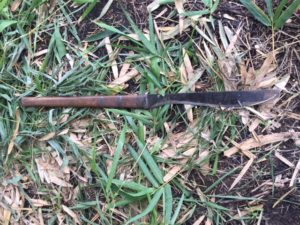
Machete (Fijian Cane knife)
Through this technique of specialising in different parts of the cacao harvesting process, farmers work together to add value and improve quality in the cacao processing chain. They are more likely to increase profit by harvesting more beans, of a higher quality, amongst more farmers in a more sustained manner. Encouraging this collaboration and helping farmers to work more closely together to improve quality and quantity of Fiji cacao beans is part of the Fijiana Cacao plan for cacao farmers in the future generations, operating in Fiji.
We hope that more Cacao farmers will adopt this approach, as this is the way forward to improve the livelihoods of rural farming communities and to grow Fiji’s cacao industry. And that is a good thing for everyone, because it means more delicious Fiji-made chocolate for us all to enjoy!
